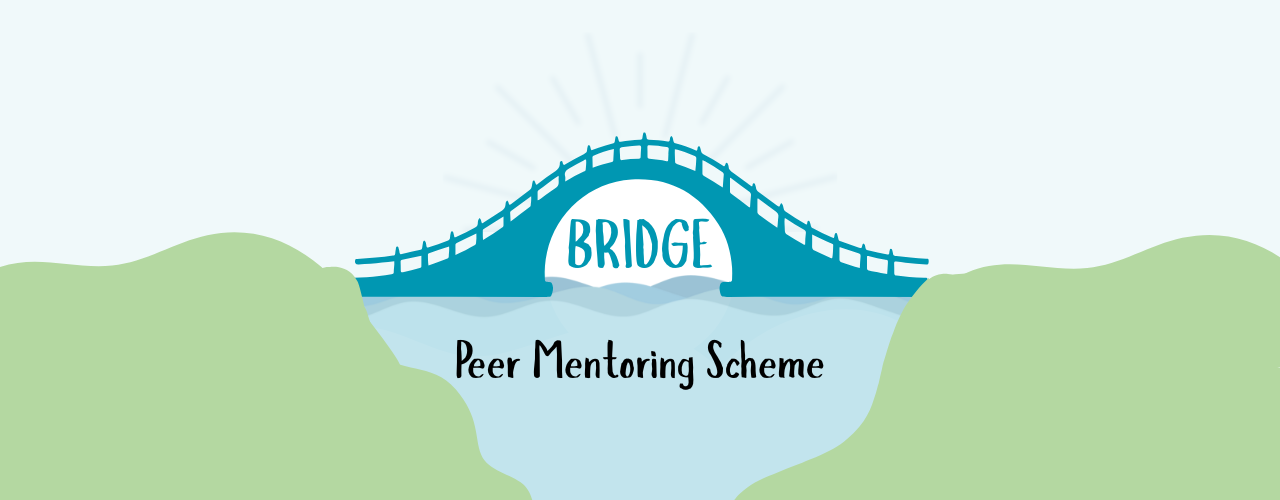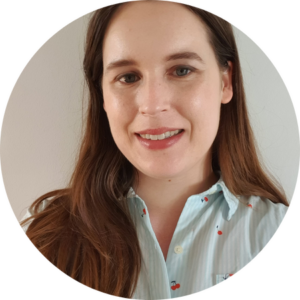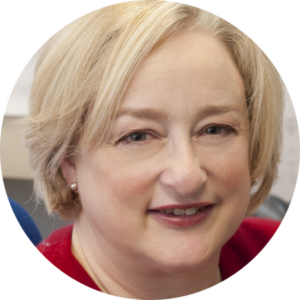
Building Reciprocal Research Relationships Internationally for Development, Growth and Enhancement
This is an MHR Incubator community initiative led by Dr Nina Higson-Sweeney and Dr Eleanor Chatburn
Applications close 10am, Monday 9 June 2025 (British Summer Time/BST)
Applications are currently open
The Building Reciprocal Research Relationships Internationally for Development, Growth and Enhancement (BRIDGE) Peer Mentoring Scheme is a six-month pilot career development programme.
This programme will begin in July 2025 with a bespoke half-day workshop hosted online via Zoom. In this workshop, you will be introduced to the wider BRIDGE 2025 cohort and your peer mentor, who you will be matched with by the BRIDGE co-leads based on the information provided in your application.
In this workshop, you will be taught the key skills necessary for successful peer mentoring by a trained coach. There will also be opportunities for interactivity and discussion, as well as a focus on the importance of global collaboration in mental health research, with guest speakers.
After this workshop, you will enter a six month peer mentoring relationship with your matched peer mentor, which will look like whatever suits you both best. For example, you could organise monthly online meetings, or email each other every fortnight to share ideas and work towards your goals. You will also receive monthly check-ins and resources from the BRIDGE co-leads.
BRIDGE aims to connect Early Career Researchers (ECRs) working in the field of mental health in the UK and the Global South for a reciprocal knowledge exchange and peer mentoring programme spanning six months.
As the focus of BRIDGE is on peer mentoring and global collaboration, it is important that you come to the scheme with at least one goal in mind that you would like to work towards with your peer mentor over the following six months. You will be encouraged to think of and develop these goals as part of the application process, as well as during the half-day workshop.
Why peer mentoring?
Peer mentoring involves two individuals who are at a similar stage in their careers, or who share similar interests or experiences, working together to help each other grow.
This is different from a traditional mentoring relationship, where someone more senior acts as a mentor to a junior mentee.
In peer mentoring, both individuals take turns at being the mentor and mentee, providing a non-judgemental environment where you can discuss challenges, provide support and guidance, and work together to identify next steps and solutions.
Peer mentoring is great for, and builds, the following skills:
• Collaboration • Knowledge exchange
• Accountability • Personal growth
• New perspectives • Confidence building
• Problem-solving • Social support
• Networking
Eligibility
You are eligible to apply to BRIDGE if you:
Identify as an Early Career Researcher (i.e., no more than 5+ years post-PhD, excluding breaks)
Work in the field of mental health research
Predominantly work in the UK, South Africa, or Brazil
Are able to attend an online half-day workshop on Tuesday 15th July 2025 from 12pm-4pm British Summer Time (BST)
Are able to commit to a six-month peer mentoring relationship with another member of the BRIDGE cohort
Please note that BRIDGE is open to clinicians and non-clinicians, as well as PhD students. If you are applying to this scheme, make sure that you note down the date and time of the half-day workshop in your diary, as it is crucial that you are able to attend.
12 May 2025
Applications open
9 June 2025, 10am BST
Applications close
1 July 2025
Applicants informed of outcome
15 July 2025, 12pm-4pm BST
Half-day online workshop and beginning of programme
13th January 2026
End of programme
Frequently Asked Questions
No. We welcome applications from current PhD students.
Yes. We consider Early Career Researchers to be anyone who is less than 5 years post-PhD, excluding breaks such as maternity/paternity leave, sick leave, etc.
No, you do not have to be currently employed by a university to take part in BRIDGE.
Yes. BRIDGE is open to both clinicians and non-clinicians.
Yes. You can apply to BRIDGE as long as mental health is a core part of your research focus. For example, if you do addiction research with a focus on mental health, you would be eligible to apply. However, if you did child and adolescent research, but just focused on physical health, you would not be eligible to apply.
No. All matching of peer mentoring pairs is done by Nina and Eleanor, based on the information provided in your application. We will try our best to ensure that you are matched on as many different elements as possible, such as career stage, research interests, and goals, but this will depend on who applies.
We will email you with the outcome at the beginning of July 2025.
If you have any further questions, please email Nina and Eleanor at nina.higson-sweeney@psych.ox.ac.uk and E.Chatburn@uea.ac.uk (copying in both emails).
Nina Higson-Sweeney
Eleanor Chatburn
Eleanor Chatburn is a Honorary Lecturer at the University of East Anglia and a Visiting Researcher at the Department of Psychology, University of Cambridge. She works for an international NGO on child and youth mental health capacity building programmes in Low- and Middle- Income Countries including Brazil and South Africa. She is a registered clinical psychologist and CBT therapist in the UK and her research interests include the co-creation and cultural adaptation of community-based psychosocial interventions, mixed methods research, and implementation science. Eleanor was a member of the Mental Health Research Incubator’s first Grow cohort, and is one of the two co-leads for the BRIDGE Peer Mentoring Scheme.
.
Clare Wakeham
The BRIDGE Peer Mentoring Scheme is free to attend. It is funded under the NIHR's Mental Health Research Initiative via NIHR Research Infrastructure.



